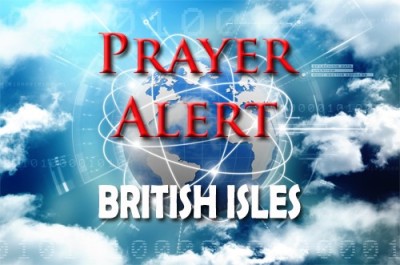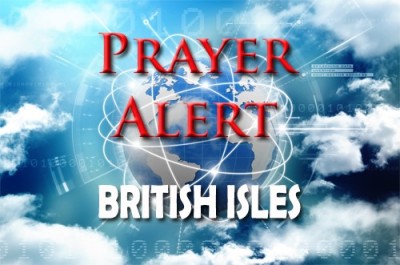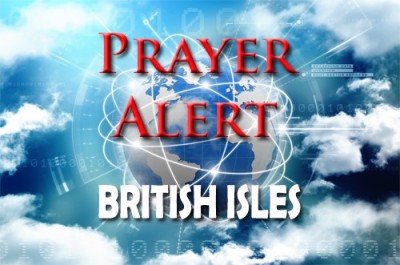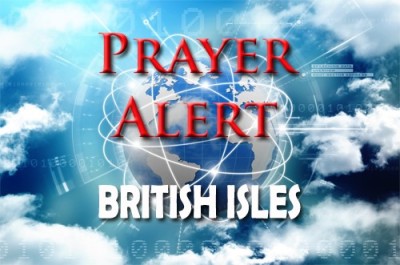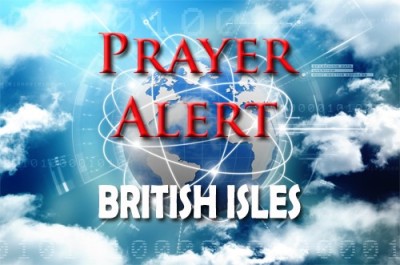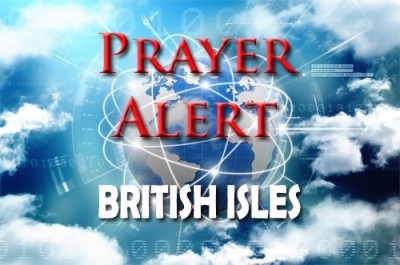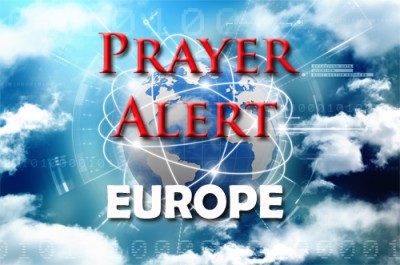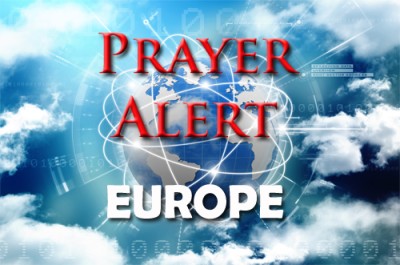King Charles diagnosed with cancer
08 Feb 2024Buckingham Palace has announced that King Charles, aged 75, has been diagnosed with cancer. The cancer (the type has not been disclosed) was discovered during treatment for an enlarged prostate. As a result, the King has started 'regular treatments' and has put his public duties on hold, though he remains optimistic about his recovery and eager to resume full duties as soon as possible. The King personally informed his sons, Prince William and Prince Harry, about his diagnosis. Despite stepping back from public engagements, he will continue his constitutional duties, including weekly telephone meetings with Rishi Sunak. Queen Camilla, Prince William, the Princess Royal, and Prince Edward will cover some of his duties. The King has been vocal about his condition to raise awareness and encourage cancer screenings.
Rishi Sunak has expressed willingness to review a report suggesting Northern Ireland should enhance its role in the UK's national security. He did so during Prime Minister’s Questions, where DUP leader Sir Jeffrey Donaldson praised Sunak for reviving Stormont's political institutions, strengthening the union, and revitalising Northern Ireland's economy and political landscape. He urged Sunak to consider the Policy Exchange report, which recommends increasing Northern Ireland's contribution to national defence. The report highlights Northern Ireland's strategic importance, advocating for expanded naval and air operations against Russian threats and urging collaboration with regional partners for collective security. Sunak commended Sir Jeffrey's leadership and acknowledged the enhanced union due to the return of devolution.
The Home Secretary is reviewing whether tighter scrutiny is needed for asylum seekers claiming conversion to Christianity. This follows the case of Abdul Ezedi, a 35-year-old Afghan asylum seeker and convicted sex offender, who converted to Christianity and is suspected of a chemical attack in South London. James Cleverly will receive a detailed report on Ezedi, highlighting concerns about the authenticity of conversions among refugees. Tim Loughton MP emphasised the need for rigorous examination of such claims to assess the risk of returning these individuals to their home countries. Former home secretary Suella Braverman accused the Church of enabling widespread false asylum claims. David Rees, a church elder, said that forty asylum seekers on the Bibby Stockholm barge are Christian converts; some had converted before they had arrived in the UK. He outlined the church's process for verifying conversions, including public testimonies in the converts' native languages. The Home Office stated it has procedures to prevent fraudulent asylum claims based on religious beliefs.
Plans to make UK world's most accessible country
08 Feb 2024The Government has announced a comprehensive Disability Action Plan to make the country the world's most accessible for disabled individuals. This initiative outlines 32 specific measures, including ensuring disabled children have access to local playgrounds and improving access for guide dog users. Over 1,300 disabled individuals, their families, and stakeholders contributed insights to the plan. They highlighted the necessity for enhanced emergency protection for disabled people, suggesting mandatory protocols like visual fire alarms and tactile signage.The plan also focuses on making public spaces, including toilets, playgrounds, and transportation, more inclusive. A new working group will advise on supporting guide and assistance dog users. The Government has also revised its approach towards a proposed Disability Enabled Badge, opting first to better understand disabled people's needs. Mims Davies, minister for disabled people, said that the plan aimed to create an equal and accessible living environment for all.
The Metropolitan Police has apologised for an incident where volunteer officer Maya Hadzhipetkova confronted gospel singer Harmonie London, 20, telling her she could not perform Christian songs on Oxford Street. Claiming that Harmonie needed church authorisation to sing such songs outside church premises, she threatened to confiscate her keyboard and equipment. The encounter, which lasted over forty minutes, ended with Harmonie feeling compelled to leave. A video of the incident, viewed over 950,000 times, sparked criticism for appearing to limit religious freedom. Harmonie described the experience as humiliating and intimidating, feeling belittled and that her rights were disregarded. A police spokesperson apologised, admitting the officer's error and acknowledging the need to learn from this mistake. The incident is under investigation by Scotland Yard. Despite the ordeal, Harmonie has resumed singing gospel music on Oxford Street. The Christian Institute is offering guidance and free training for street evangelists, who can contact them for more information.
In 2023, a record-breaking 52,000 individuals contacted the National Gambling Helpline for assistance with gambling issues, a significant increase from the 42,000 in 2022. This surge included concerns about others' gambling habits, particularly noted during the Christmas season. Television viewing for some addicts has become challenging due to rampant gambling ads. Additionally, 7,000 people downloaded the Gamban app, which blocks online gambling access and offers addiction combat advice. Gamban criticised the targeting of self-excluded gamblers by unregulated casinos.The software is designed to be hard to uninstall to support recovery. Ciarán Kelly of the Christian Institute urged the government to tackle the root causes. Samantha Turton of GamCare noted a 'landmark climb' in people seeking early intervention for gambling addiction, indicating both concern and hope.
Ukraine: drones touted as key to future success
08 Feb 2024Ukrainian commander-in-chief Valerii Zaluzhny has highlighted the use of drones as a way of countering Russia's military advantage and altering the course of the war. Russia has also continued to attack Ukraine with drones and missiles, but it has failed to capture new territory despite its superior resources. Recent Ukrainian successes which illustrate the potency of drones include sinking a Russian warship and strikes on airfields and an oil refinery. Ukraine expects to exploit this technological advantage by producing millions more drones. Meanwhile, although the EU finally approved a €50 billion aid package for Ukraine on 2 February, this is seen as only a small step: see
Russia: villagers’ lives threatened by landfill
08 Feb 2024Novaya Urada, a village in the North Caucasus republic of Dagestan, has deep roots in livestock farming and each year draws tourists hoping to photograph a vibrant poppy field nearby. However, responding to an escalating rubbish crisis, the authorities have started work on a landfill site near the village, expected to receive 300 tons of non-recyclable rubbish a year - even though there will also be three new waste-processing facilities in the republic this year. Despite initial assurances that they had nothing to worry about, residents are fighting determinedly against the dump, citing lack of consultation and environmental impact assessment. They say that construction has already destroyed the beloved poppy field and is threatening the nearby Sarykum Dune, home to rare flora and fauna.
